Positive Leadership: Skill Development for Employee Performance
VerifiedAdded on 2023/06/10
|8
|353
|61
Presentation
AI Summary
This presentation delves into the significant role of leadership in performance management, emphasizing the importance of positive leadership skills for improving employee performance. It highlights key attributes of effective leaders, such as guiding vision, honesty, dedication, passion, integrity, trust, listening skills, risk-taking ability, and charisma. The presentation also touches upon effective leadership theories, including functional, behaviorist, situational/contingency, and transformational theories. It further elaborates on the performance management process, underscoring the need for positive leaders to develop performance strategies and track employee performance data through regular meetings and progress monitoring. The presentation concludes by emphasizing how positive leadership fosters a conducive environment for employee growth and organizational success.
1 out of 8
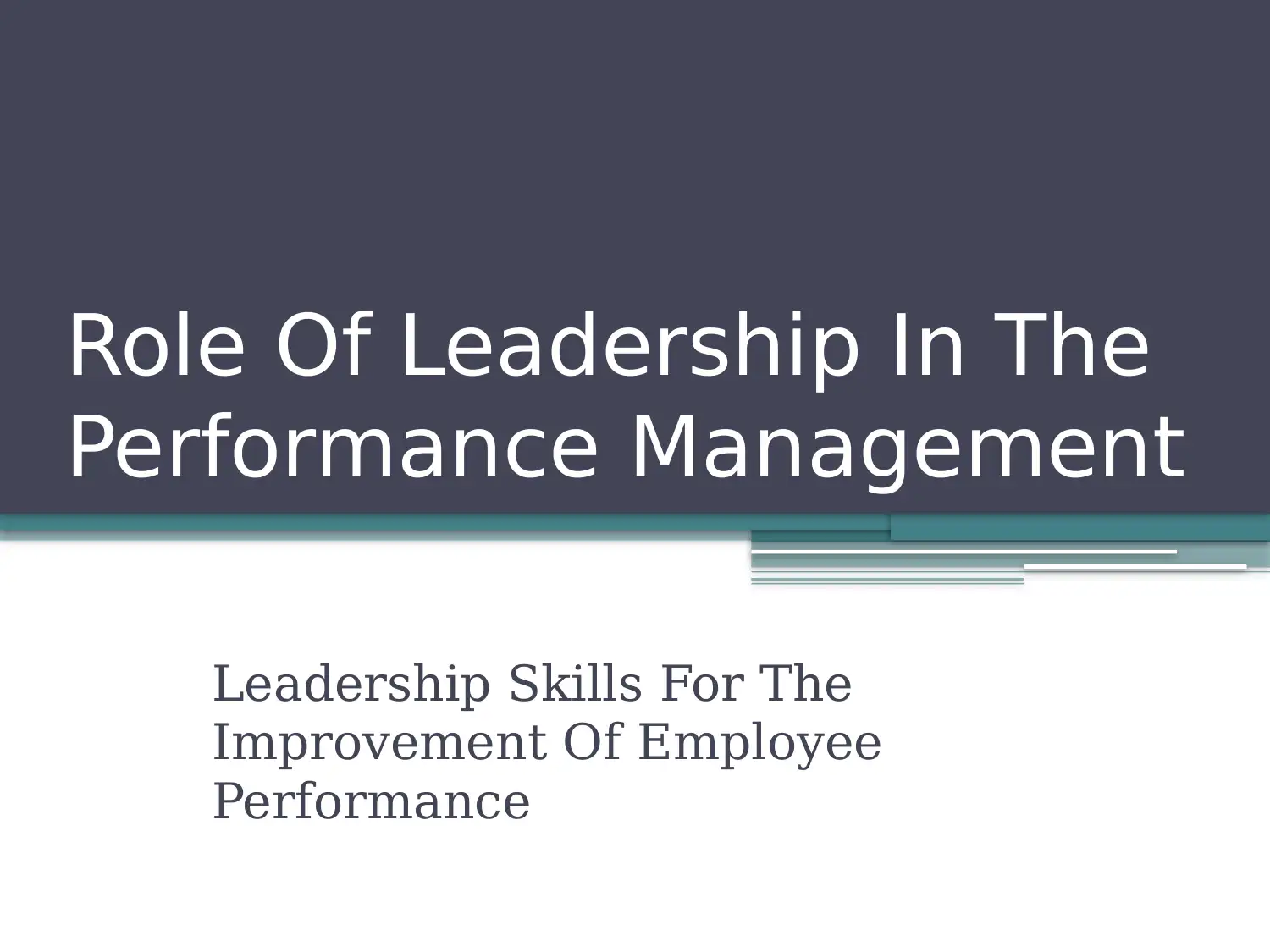
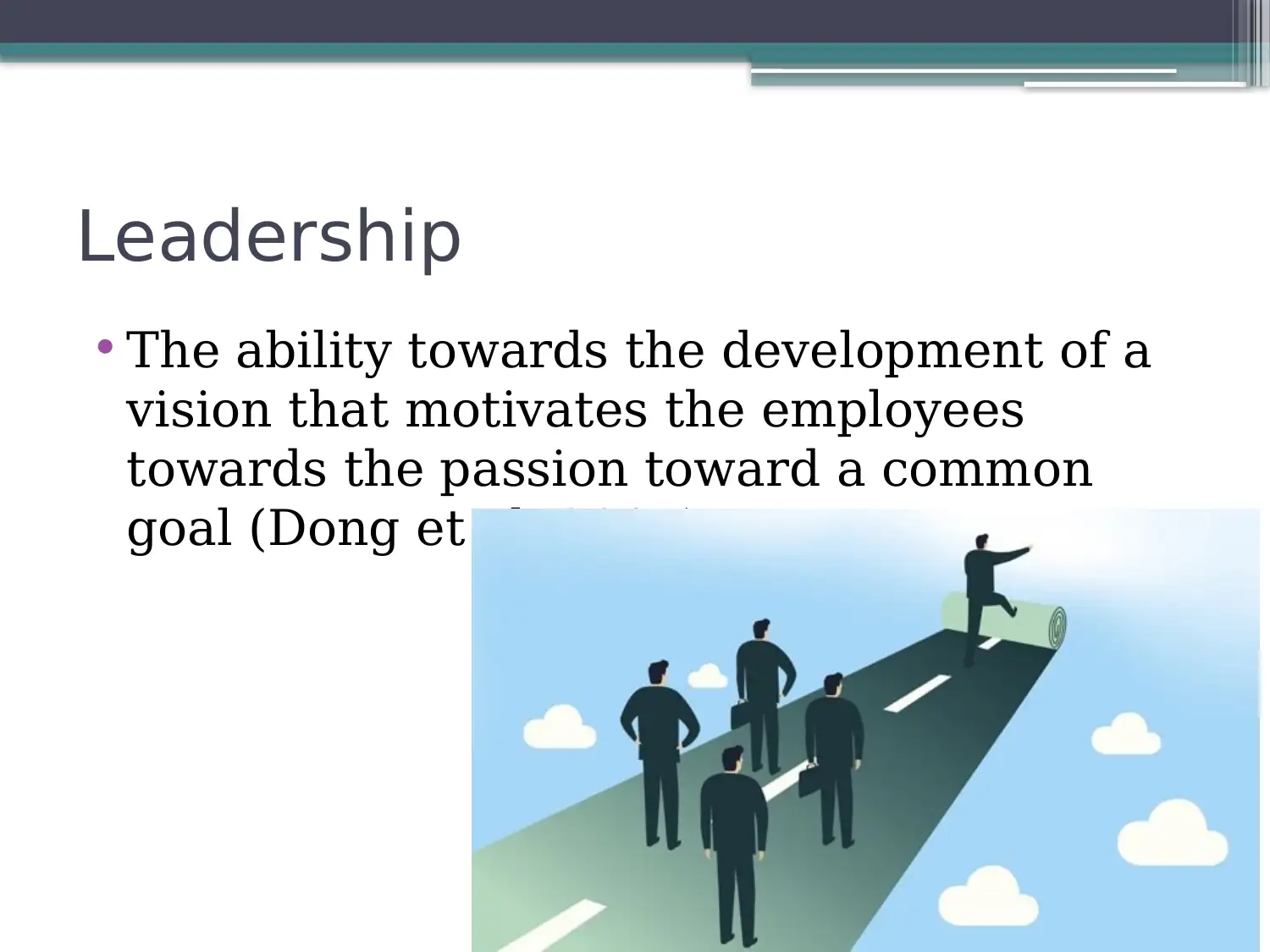
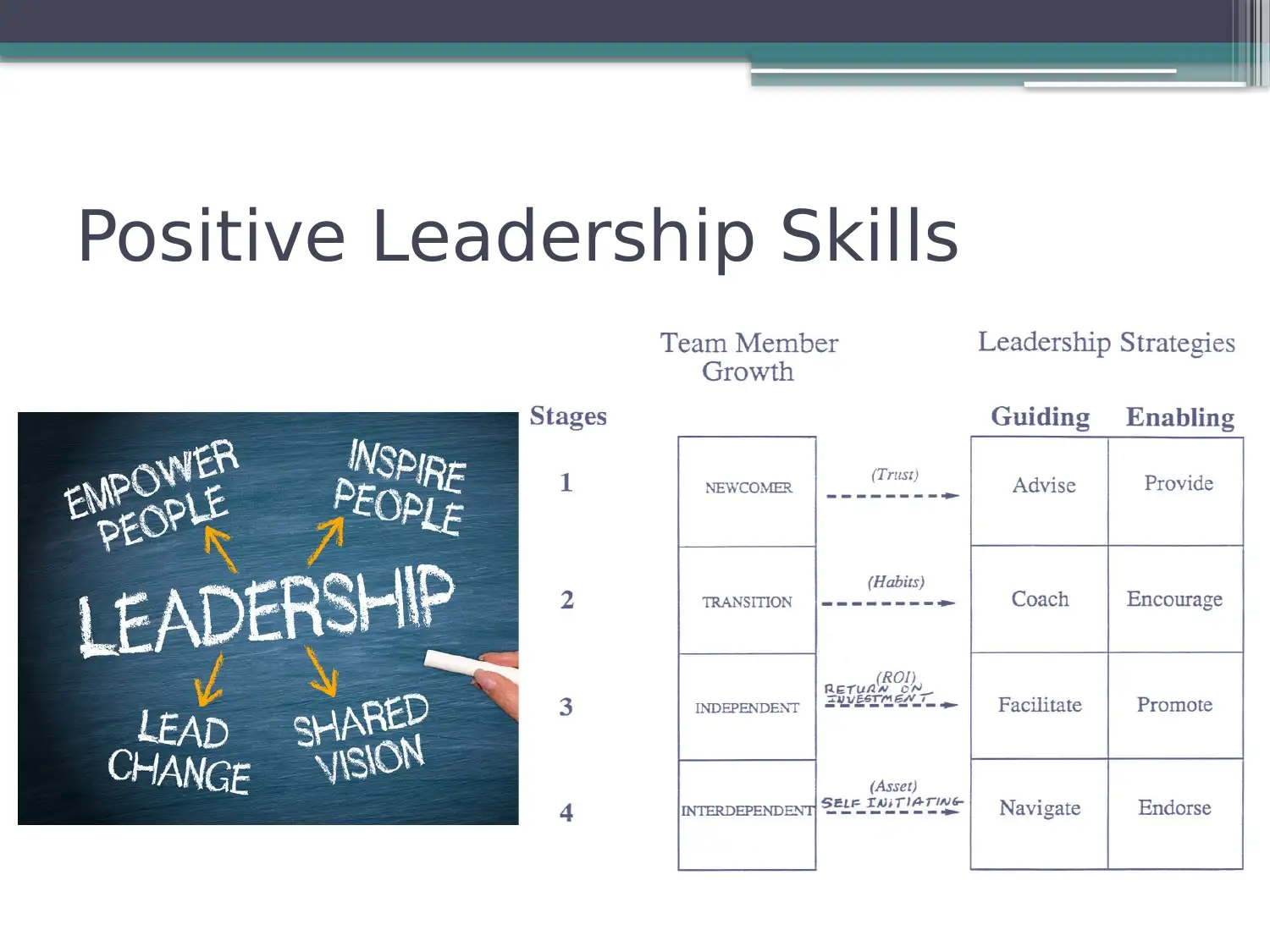

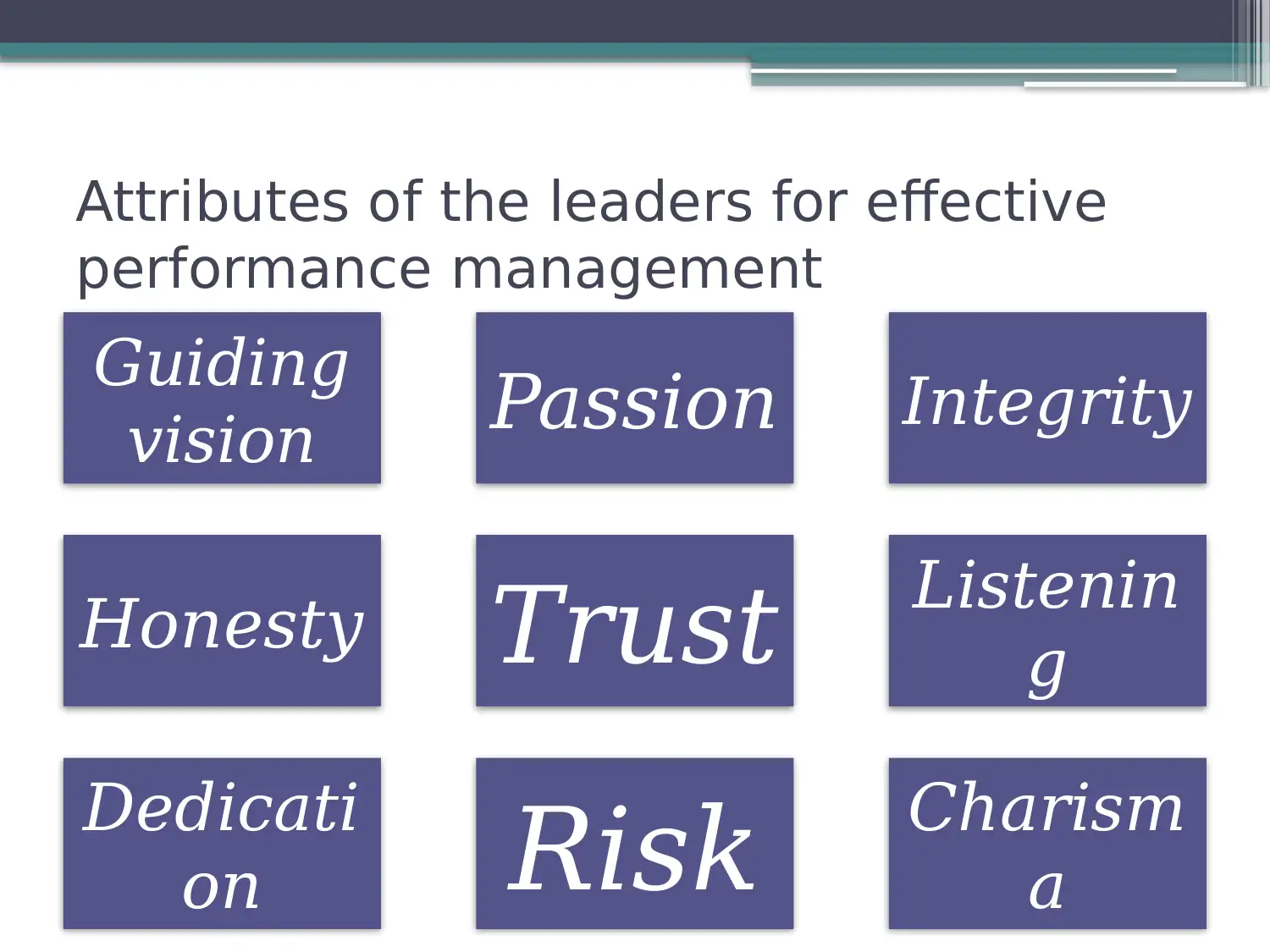
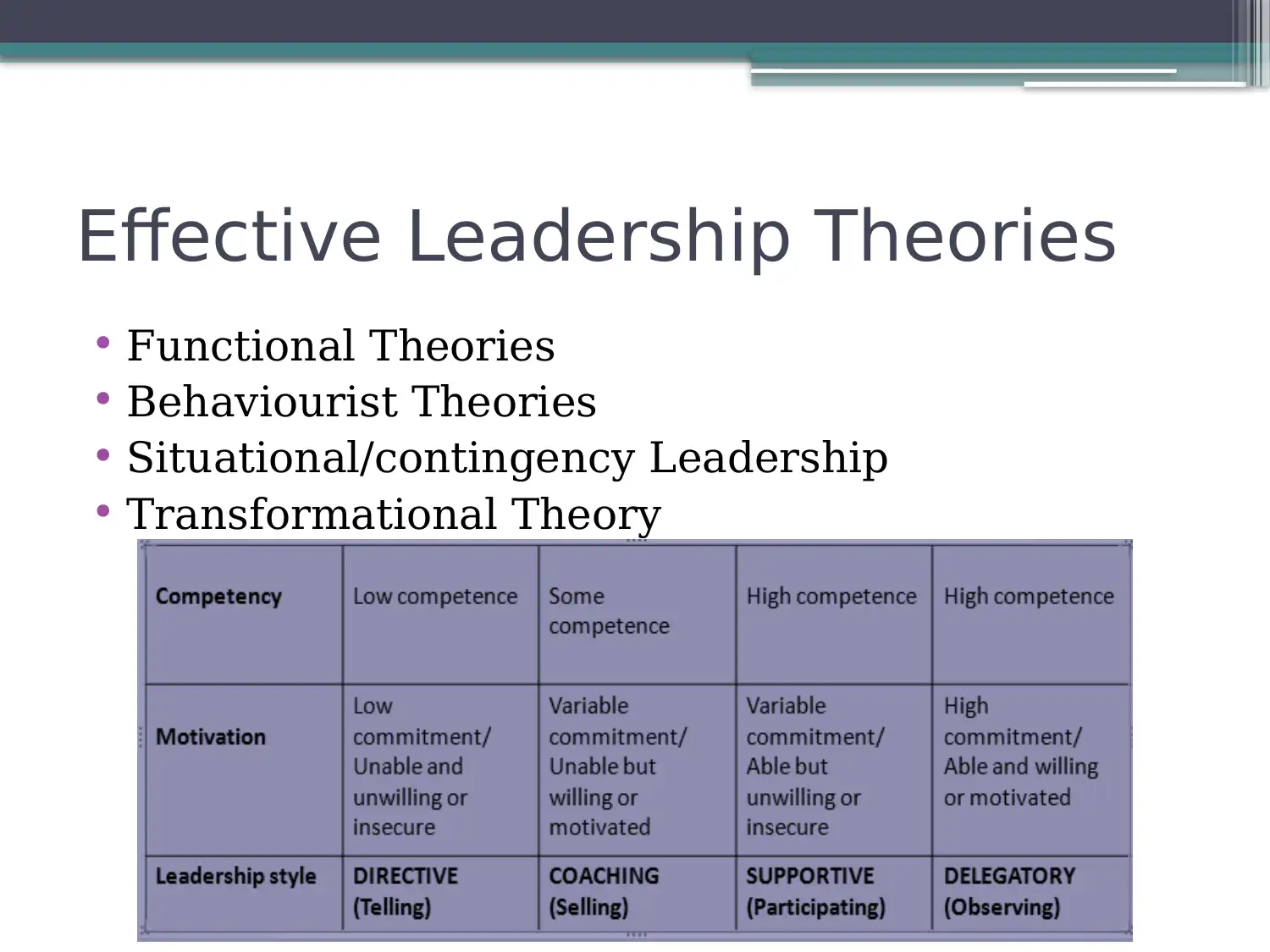
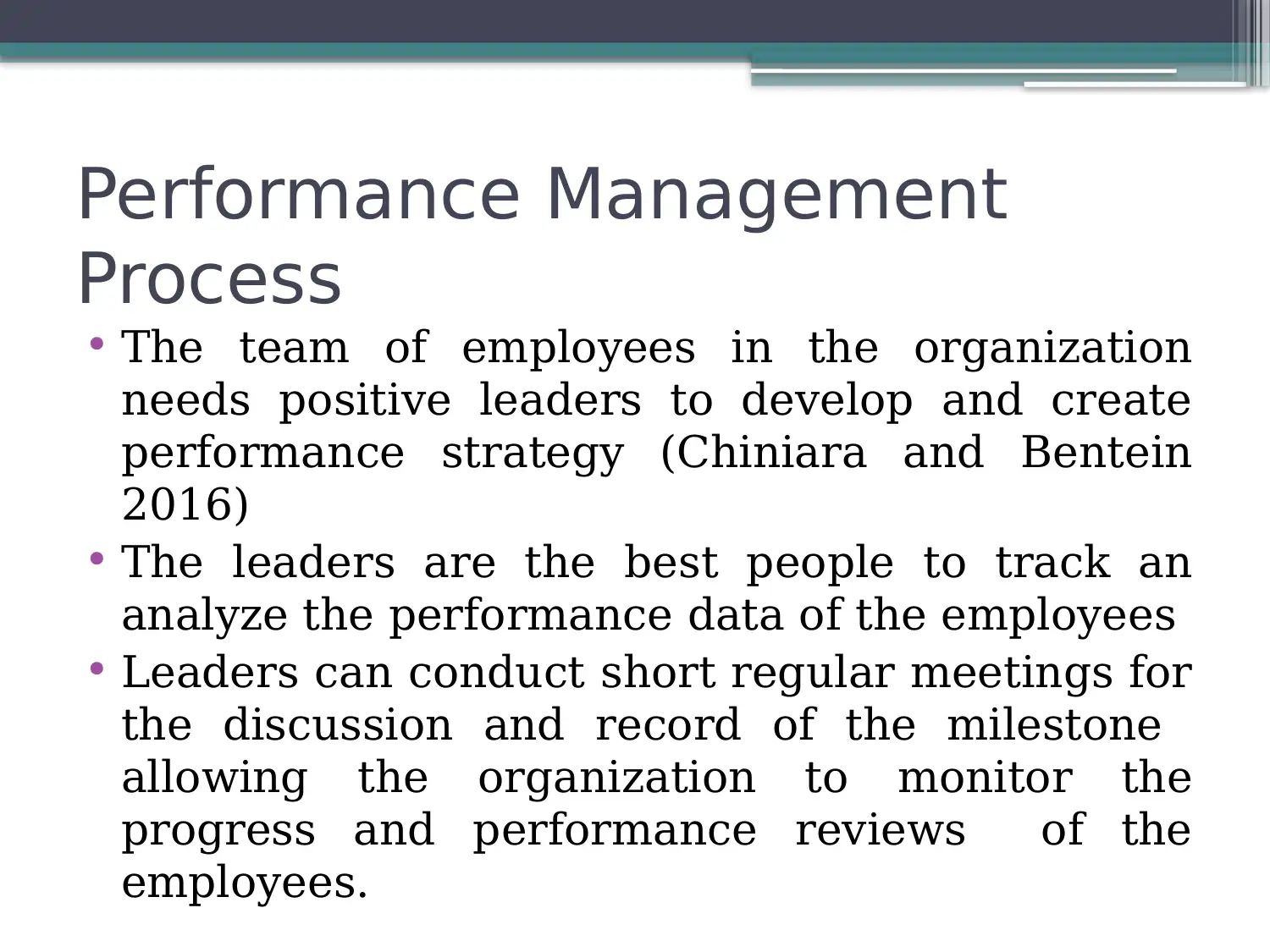
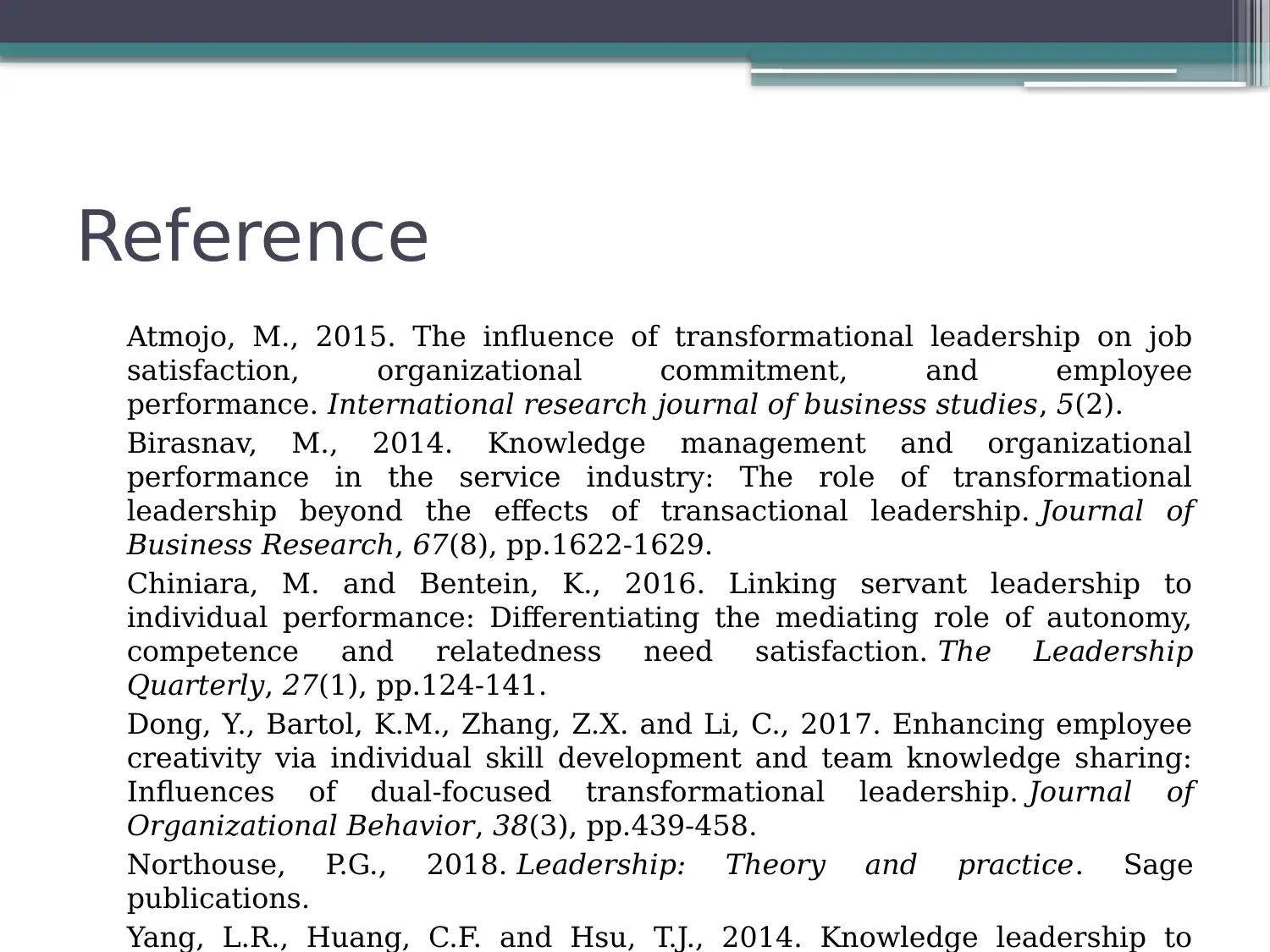







![[object Object]](/_next/static/media/star-bottom.7253800d.svg)